1. The Dick Van Dyke Show (1961-1966)
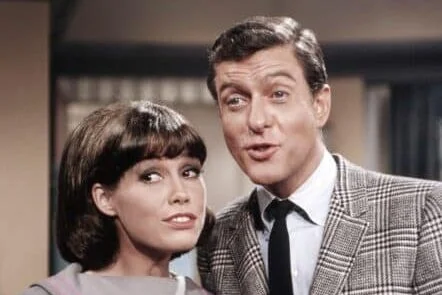
The Dick Van Dyke Show is often remembered for its perfect balance of slapstick and clever writing, but it was more than just funny—it was groundbreaking. The show, which starred Dick Van Dyke and Mary Tyler Moore, pushed boundaries by exploring relatable, everyday situations with a humorous twist. At the time, it was one of the first sitcoms to tackle issues like marital dynamics and workplace humor, setting the stage for future sitcoms to follow suit. It wasn’t just the physical comedy that set the show apart, but its ability to blend wit with a level of sophistication rarely seen in TV comedies.
The dynamic between Van Dyke’s character, Rob Petrie, and his wife, Laura (played by Moore), was revolutionary for the time. While many sitcoms of the era portrayed traditional gender roles, The Dick Van Dyke Show subtly subverted these expectations. Rob’s slapstick routines were matched with Laura’s sharp humor, making the show a pioneering force for depicting more nuanced relationships on screen. This clever mixture of humor and social commentary made it one of the best sitcoms of the decade and a precursor to many sitcoms that would follow.
2. I Dream of Jeannie (1965-1970)
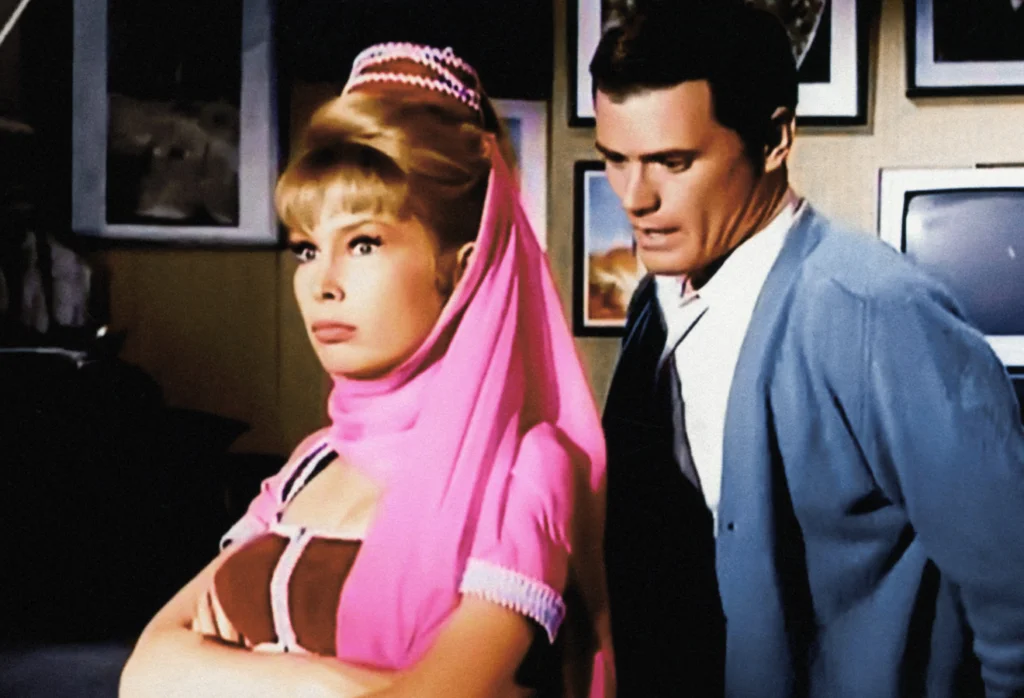
The concept of a magical, wish-granting genie living in a bottle may seem pretty whimsical today, but I Dream of Jeannie was a major departure from the norm in the ’60s. Starring Barbara Eden as the titular genie, the show mixed elements of fantasy and situational comedy in a way that hadn’t been done before. It was quirky, lighthearted, and a bit edgy for its time—especially when it came to the playful and flirtatious dynamic between Jeannie and her master, astronaut Major Nelson (Larry Hagman). The show’s lighthearted take on gender roles, with a genie who constantly tried to help her master, was both entertaining and a bit controversial.
The humor of I Dream of Jeannie came not just from Jeannie’s magical antics, but also from the way it twisted traditional sitcom conventions. Jeannie was not the typical housewife of the era, and her constant meddling in Major Nelson’s life brought a fresh, fun perspective to television. This mix of fantasy and comedy wasn’t just groundbreaking; it also offered a humorous commentary on the absurdity of traditional gender norms and social expectations of the time.
3. The Addams Family (1964-1966)
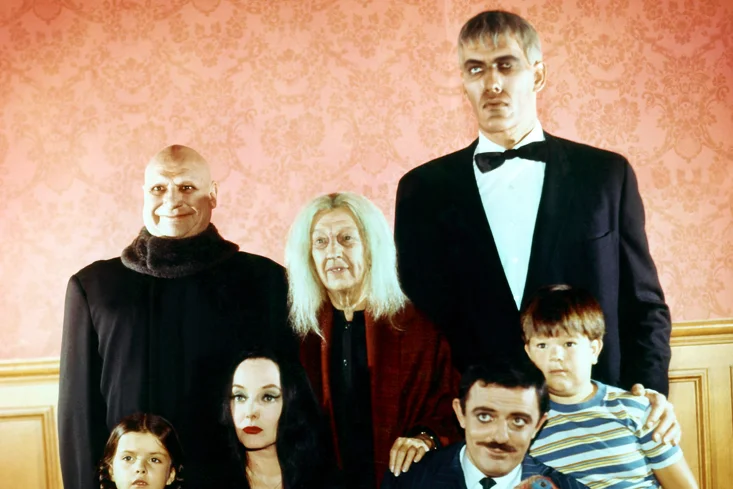
While The Addams Family wasn’t your typical sitcom, its dark humor and eccentric characters made it a standout in the ’60s. The show featured a family that reveled in their macabre interests, yet their quirky behaviors became a source of humor. Unlike other sitcoms that leaned on traditional family values, The Addams Family took a more unconventional approach by celebrating the strange and the unusual. The humor often came from the contrast between the Addams’ dark, gothic lifestyle and the more uptight, “normal” world they interacted with.
What made The Addams Family revolutionary was its ability to push the boundaries of what could be considered “family-friendly” humor. The characters, from the deadpan Morticia to the mischievous Wednesday, represented a break from the perfect, often idealized families seen in many sitcoms of the time. Their embrace of the bizarre was a humorous commentary on societal norms, showing that family life didn’t have to fit into a tidy box.
4. Get Smart (1965-1970)
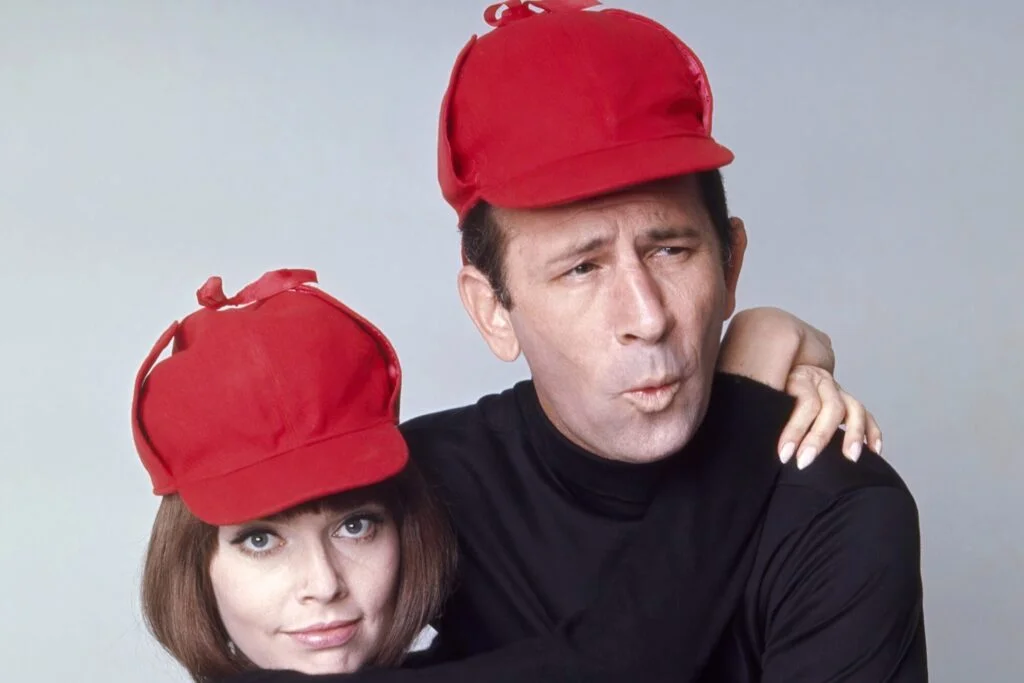
Get Smart, the hilarious spy spoof starring Don Adams as the bumbling secret agent Maxwell Smart, took a comedic approach to the world of espionage. The show parodied the popular spy genre, particularly James Bond films, with its slapstick humor, clever one-liners, and absurd gadgets. What made it stand out in the ’60s was its ability to mix physical comedy with sharp, satirical humor. The show wasn’t just funny—it was a clever commentary on the spy craze that had taken over pop culture at the time.
Through Smart’s misadventures with his partner 99 (Barbara Feldon), Get Smart explored the absurdity of the spy genre, making fun of its seriousness while still offering thrilling moments. The humor was ahead of its time, using irony and absurdity to poke fun at everything from government secrecy to the idea of “perfect” heroes. By blending parody with satire, Get Smart became a hilarious and influential sitcom that broke new ground in the world of TV humor.
5. The Munsters (1964-1966)
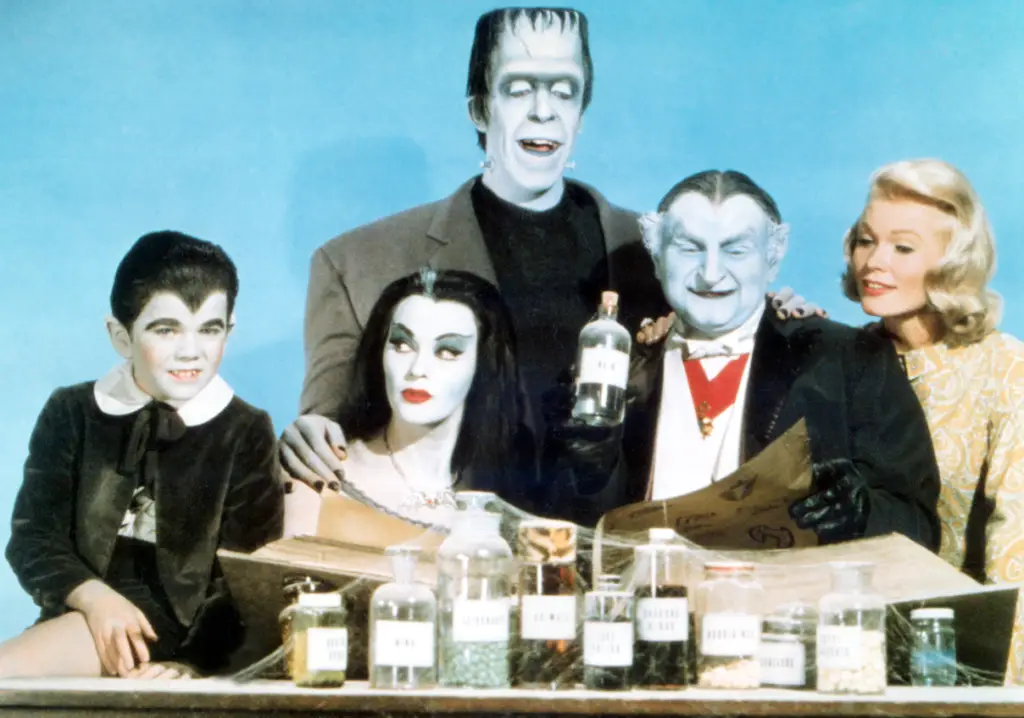
If The Addams Family wasn’t enough to prove that dark humor had a place in ’60s television, The Munsters certainly sealed the deal. This sitcom, which followed the quirky, monster-filled family, was a humorous twist on the classic family sitcom formula. It blended absurdities and lovable characters like Herman Munster (Fred Gwynne), a well-meaning but bumbling patriarch, with the contrast of their monstrous appearances. The comedy came from the family’s ability to maintain a “normal” life despite being anything but conventional.
What set The Munsters apart was its take on the concept of “normalcy.” While other shows were portraying families that strived for perfection, The Munsters embraced the unconventional and used it as a source of comedy. The show’s humor didn’t just come from the characters’ outlandish appearances but from the way the family embraced their uniqueness and found humor in everyday situations, making it a truly original and boundary-pushing sitcom.
6. The Beverly Hillbillies (1962-1971)
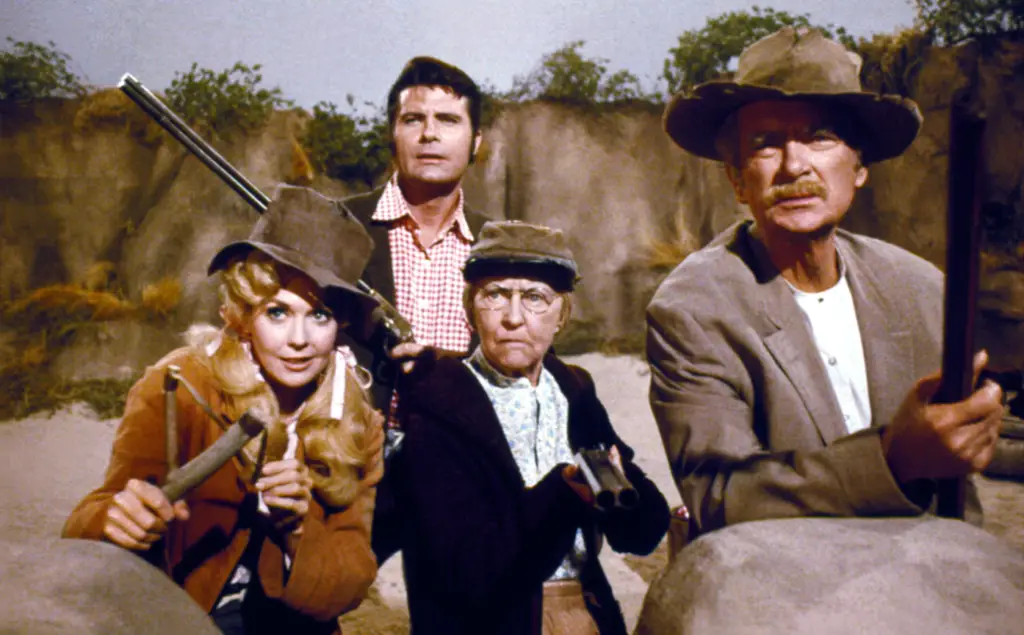
The Beverly Hillbillies might have been a fish-out-of-water story, but it turned this classic concept into a rich comedic exploration of social class, manners, and absurdity. The show followed the Clampett family as they moved from rural Arkansas to the glamorous world of Beverly Hills after discovering oil on their property. The humor came from the contrast between the family’s hillbilly lifestyle and the snobbish, materialistic world they found themselves in. The show pushed boundaries by addressing class differences in a way that was both playful and, at times, a bit satirical.
What made The Beverly Hillbillies stand out was its ability to make light of serious social issues like wealth and class, all while remaining endearing. The Clampetts’ complete lack of awareness of Beverly Hills’ high society created a humorous juxtaposition. The show used the humor of culture clash not just for laughs, but also to critique the pretensions of the upper class. Through its mix of slapstick, situational comedy, and clever social commentary, The Beverly Hillbillies became a sitcom that pushed the boundaries of humor in a way few others dared to at the time.


